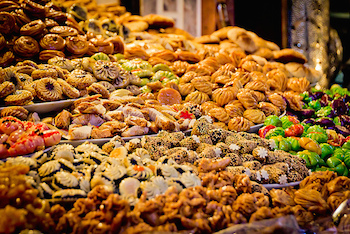Moroccan Sweets and Pastries, North African Deserts & Recipes
April 12th, 2009
Stuffed with almond paste, dusted with confectionery sugar and flaking with each bite, Moroccan pastries are reserved for special occasions. Cooking is regarded as an extravagant art in Morocco and in North Africa. Large meals are prepared for births, circumcisions, weddings,…



